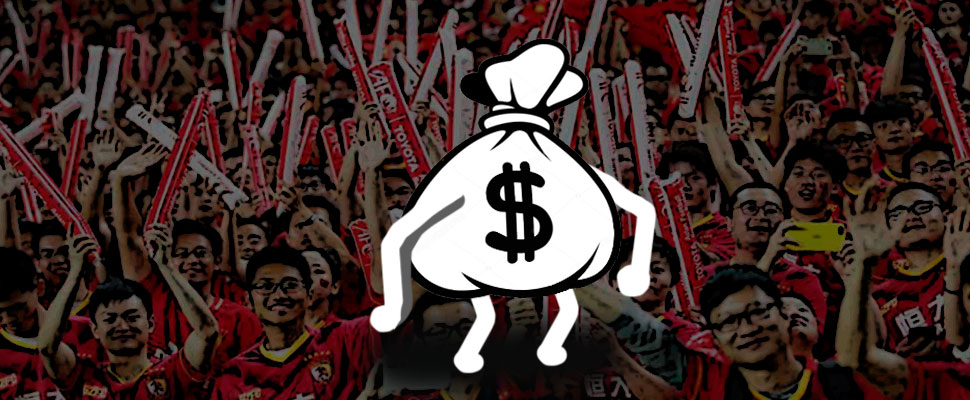Is it the end of China’s lucrative football era?
Listen this article
Big soccer player’s names came to China seduced by astronomical salaries. However, game rules will change for 2019

From 2015, Chinese President Xi Jinping introduced into his government an ambitious plan to make football the national sport, which included being recognized and training future stars, which later could be compared to Cristiano Ronaldo and Lionel Messi, leading the country to become a power 2050
Leer en español: ¿Es el final de la 'danza de los millones' del fútbol chino?
That was how the boom began in a football-loving nation. However, the results were summarized in single participation in world cups: Korea and Japan 2002, adding three defeats in the group stage.
For this reason, and to give the league more competitiveness, the clubs offered juicy salaries and ostentatious prizes, despite the fact that the level was low and the players would not participate in the big leagues like Spain, England, and Italy. That's how Carlos Tevez, Hulk, Oscar, Didier Drogba, Jackson Martinez, Ezequiel Lavezzi, among others, preferred the yuan before the rivalry and some even sacrificed their participation in the soccer world cup.
The 'millions dance' goes further and the clubs are not far behind, as they are 'populating' the Asian giant with training schools, as is the case of the Spanish clubs Real Madrid and Barcelona. Recently the English club Manchester United created 3 thematic training centers in Beijing, Shanghai, and Shenyang, which will be open in 2020.
Read also: The new Premier League's contender: this is how Wolverhampton works
Where does the money come from?
Powerful Chinese companies, such as Greenland Holdings which according to Fortune magazine invoices about 33 billion dollars a year, have put world stars in the midst of China’s football clubs. In this case, Greenland just disbursed 40 million dollars a year to Argentine Carlos Tevez.
This is how important financial muscles of China, who are venturing into the football field hoping that their brand grows thanks to the advertising placed on football t-shirts and along with the government support to turn football as a national sport, placed the country in the football radar.
However, the astronomical transfer’s figures and the incalculable salaries had their repercussion for the 2019 season, since the Chinese Football Federation announced that the local players of the professional branch will have salary limits and must sign new contracts. Likewise, there will be a limit on bonifications for victories and goals scored money that cannot be paid in cash.
Despite making these measures known to Chinese footballers, no change has been made in the salaries of foreign players. At the moment, the 100 percent tax on foreign signings exceeding 45 million yuan, about 6.5 million dollars, is being applied since 2017.
The thing that has not changed is China's huge investment figures in foreign football. Having bought clubs like AC Milan in Italy and adding huge investments in Atlético de Madrid through conglomerates like the Wanda Group. China’s name will not stop playing in the football world, even if it is not their league and their football that capture the headlines.
LatinAmerican Post | Jorge Hernández
Translated from: '¿Es el final de la 'danza de los millones' del fútbol chino?'




